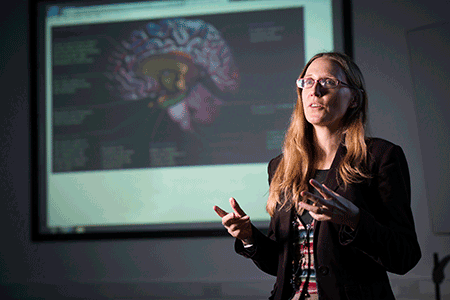Excluding children from school may lead to long-term psychiatric problems, a study has shown.
The University of Exeter carried out the research. It found that excluding pupils may result in a mental disorder.
The problem is likely to affect children with learning disabilities and autism particularly badly. That’s because schools are more likely to exclude them than their neurotypical peers.

Professor Tamsin Ford: warns that excluding school pupils can have a long-term impact on their mental health
Office for National Statistics (ONS) research also shows that schools are more likely to exclude children with depression, anxiety and ADHD.
Excluding children ‘has long-term impact’
The study’s lead researcher was Professor Tamsin Ford, a child and adolescent psychiatrist. She warned that exclusion has a long-term impact on a child’s progress.
The report concluded that it is important to give support to children with challenging behaviour. By using interventions it may be possible for these vulnerable children to avoid exclusion.
Professor Ford said there is an “established link” between children’s behaviour, classroom climate and teachers’ mental health, burnout and effectiveness.
Greater support for children with challenging behaviour
She said giving greater support to children with challenging behaviour might “improve teachers’ productivity and school effectiveness” .
The researchers looked at responses from more than 5,000 children, their parents and teachers. They used the British Child and Adolescent Mental Health Surveys, which the ONS compiled.
Consistently poor behaviour was the main reason for school exclusion. Many students faced repeated dismissal.
Schools expelled few of them, but Professor Ford warned that even temporary exclusions can amplify distress.
Severe psychological difficulties
If pupils suffer severe psychological difficulties this could require long-term NHS support.
The researchers found more children with mental disorders among those whose schools had excluded them when they followed up on progress than those whose schools had not excluded them.
The work omitted children who had a previous mental disorder from this analysis.
The researchers concluded there is a ‘bi-directional association’ between distress and exclusion.
This means distressed children with mental-health problems are more likely to be excluded, but exclusion was linked to increased psychological problems three years later.
The study included more than 200 children who had experienced at least one exclusion.
The work was published in the journal Psychological Medicine this month (August 2017).
Related:
- Four in five suffer poor mental health
- Still stuck in mental health hospitals
- Mental health problems go undiagnosed
- Scandal of child mental health spending
- Sleep problems impact fathers’ health
- Disabled children hidden from society
- Lamb distressed at face-down restraint
- Parents forced to launch petitions
Published: 25 August 2017















